| Mikoláš Aleš (1852 - 1913) |
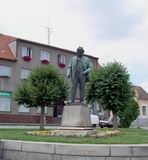 The Czech painter and illustrator. He followed most of all famous events and the important personages of the Czech history.
The Czech painter and illustrator. He followed most of all famous events and the important personages of the Czech history.
|
| Karel Ančerl (1908 - 1973) |
|
The Czech composer and conductor. Between 1950 - 1968 he the was the art director of The Czech Philharmonic Orchestra. After 1968 he worked in Toronto, Canada.
|
| Jindřich Šimon Baar (1862 - 1925) |
|
The Czech writer. He presented the life in villages in South Bohemia and in West Bohemia.
|
| Břetislav Benda (1897 - 1983) |
|
The Czech sculptor. The figure of a woman, the symbol of life and nature, was the main motive of his works. He was born in the small village Líšnice near the village Sepekov.
|
| Edvard Beneš (1884 - 1948) |
|
The Czech politician. Between 1918 - 1935 Minister of Foreign Affairs, between 1921 - 1922 Prime Minister, between 1935 - 1938 President of the Czech Republic. During the Second World War he coordinated the exile Czech government in London. After liberation of the Czech Republic he became President again, until 1948. He was the founder-member of estabilishing the Czech state. He cooperated with T. G. Masaryk. He died in his summer house in the small town Sezimovo Ústí.
|
| František Bílek (1872 - 1941) |
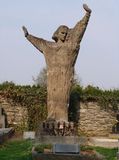 The Czech sculptor. He was interested in the attributes of human being and the hope. He created graphics, drawings and ceramics as well. There is a small museum in the house, where he was born, in the small town Chýnov.
The Czech sculptor. He was interested in the attributes of human being and the hope. He created graphics, drawings and ceramics as well. There is a small museum in the house, where he was born, in the small town Chýnov.
|
| Otokar Březina (1868 - 1929) |
|
The Czech poet of Symbolism. He wanted to reveal the meaning of life in his works.
|
| Ota Bubeníček (1871 - 1962) |
|
The Czech landscape painter and marionetteer. He was the director of the marionette theatre and he prepared settings and puppets for puppet shows as well. His paintings are inspired by themes from foreign countries.
|
| Jakub Bursa (1813 - 1884) |
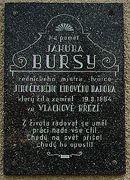 Folk artist and architect of South Bohemia. He decorated many gables of houses in South Bohemia in the style of the so-called rural South Bohemian Baroque (Vlachovo Březí, Šumavské Hoštice, ...).
Folk artist and architect of South Bohemia. He decorated many gables of houses in South Bohemia in the style of the so-called rural South Bohemian Baroque (Vlachovo Březí, Šumavské Hoštice, ...).
|
| Jan Buquoy (1741 - 1803) |
|
The Czech aristocrat, founder of many institutions for the poor in the former Austro-Hungarian Empire and trustee of all foundations in the country. He founded the nature park Terčino Údolí (Theresa's Valley).
|
| Jiří Buquoy (1781 - 1851) |
|
The member of the Czech aristocracy. He is the founder of the first reserves in Bohemia - Žofínský Prales (Žofín Forest) and Hojná Voda.
|
| Jan Campanus Vodňanský (1572 - 1622) |
|
The Czech humanist, poet and composer. Professor and later also the chancellor of the Prague University. Author of many latin poems.
|
| Emanuel Chalupný (1879 - 1958) |
|
The Czech sociologist. He wrote about various social and literal events and he thought up his own system of sociology.
|
| Petr Chelčický (about 1390 - about 1460) |
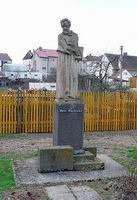 The important Czech thinker and religious reformer, author of several treatises. He was against violence and struggling. Community of equal people was his visionary ideal. He lived with his followers in the small village Chelčice.
The important Czech thinker and religious reformer, author of several treatises. He was against violence and struggling. Community of equal people was his visionary ideal. He lived with his followers in the small village Chelčice.
|
| Prokop Chocholoušek (1819 - 1864) |
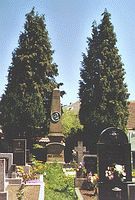 The Czech writer and journalist. He was inspired by the Czech history. He was one of the founders of the Czech historical prose. He was persecuted because of his ideas and he was interned for many years. He died in the village Nadějkov.
The Czech writer and journalist. He was inspired by the Czech history. He was one of the founders of the Czech historical prose. He was persecuted because of his ideas and he was interned for many years. He died in the village Nadějkov.
|
| Cyril Chramosta (1913 - 1990) |
|
The Czech painter and graphic desiner. His works were inspired by the landscape in South Bohemia.
|
| Jan Čarek (1898 - 1966) |
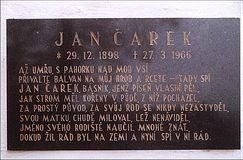 The Czech poet, essayist and literary critic. He wrote lyrical poetry inspired by the landscape in South Bohemia and also poetry for children. He is author of many epigrams as well.
The Czech poet, essayist and literary critic. He wrote lyrical poetry inspired by the landscape in South Bohemia and also poetry for children. He is author of many epigrams as well.
|
| František Ladislav Čelakovský (1799 - 1852) |
|
The Czech poet and scientist and the professor of Slavonic Studies in Wroclaw (Poland) and in Prague. He collected folk literature and songs.
|
| Ema Destinnová (1878 - 1930) |
|
The famous Czech opera singer. She was engaged in Prague, Berlin, London, Paris, New York. She was also a poet and translator.
|
| Kilián Ignác Dienzenhofer (1689 - 1751) |
|
The Czech architect of the Baroque. He cooperated with his father, the famous Czech architect Kryštof Dienzenhofer, and with Giovanni Santini as well. His well-known buildings are Church of St. John Nepomucene and Church of St. Nicholas in Prague, Church of St. Wenceslas in Broumov and many others.
|
| Josef Dobiáš (1888 - 1972) |
|
The Czech historian and the professor of the Charles Univesity in Prague.
|
| František Doucha (1810 - 1884) |
|
The chaplain in the small town Petrovice. He collected folk literature and songs. He translated from 14 languages and he helped with the Czech edition of Shakespeare's dramas. He cooperated in several encyclopedias too.
|
| Záviš of Falkenštejn (about 1250 - 1290) |
|
The important Czech nobleman. He joined the up-rising against King Premysl Ottakar II. He participated on restoration of the Czech state independence. In 1289 he was arrested, accused of conspiracy and in 1290 executed.
|
| František Antonín Gerstner (1795 - 1840) |
|
The Czech engineer, professor in the poly in Vienna (Austria) and the builder of the horse-drawn railway between České Budějovice and Linz (Austria), which was designed by his father, František Josef Gerstner. He also built the first public steam railway in Russia (between Saint Petersburg and Carskoe Selo). He died in the USA.
|
| Josef Gočár (1880 - 1945) |
|
The important Czech architect of period between world wars. He was influenced by Cubism and Functionalism.
|
| Blessed Gunther (? - 1045) |
|
The Blessed Gunther was monk in the Benedictines monastery in Bavaria, later he lived as a hermit in woods of the Šumava mountains (Bohemian Forest). He restored the trade route between Bohemia and Bavaria and he led dealings between the Czech and German rulers. He died in his hermitage on the slope of Březník mountain. He is buried in the Benedictins monatery in Břevnov (Prague).
|
| Jaroslav Hašek (1883 - 1923) |
|
The Czech writer, humorist and journalist. During the First World War he fought in Russia in the civil war. His novel about the good soldier Švejk ("Osudy dobrého vojáka Švejka za světové války") became one of the most known works of the Czech literature.
|
| Bohumil Havlasa (1852 - 1878) |
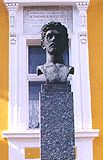 The Czech writer, the author of historical adventurous novels.
The Czech writer, the author of historical adventurous novels.
|
| Karel Havlíček Borovský (1821 - 1856) |
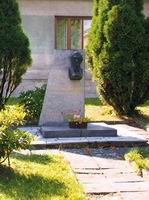 The Czech journalist, writer, publisher and politician. Between 1851 - 1855 he was internee in Brixen because of his political activities. He wrote epigrams and satirical poetry.
The Czech journalist, writer, publisher and politician. Between 1851 - 1855 he was internee in Brixen because of his political activities. He wrote epigrams and satirical poetry.
|
| František Herites (1851 - 1929) |
|
The Czech writer and journalist.
|
| Prokop Holý (? - 1434) |
|
The Czech priest and politician. From 1426 the leading representative of the radical part of the Hussite movement. He died in the last Hussite battle near Lipany.
|
| Jan Hraše (1840 - 1907) |
|
The Czech teacher of geography and history and archeologist. He led an exploration of tumuli in the surroundings of the towns Bechyně, Milevsko, Tábor and České Budějovice and around the Smutná river, where he found 11 prehistoric burial grounds and more than 1,000 graves. He contributed to the biggest Czech encyclopedia "Ottův slovník naučný".
|
| Aleš Hrdlička (1869 - 1943) |
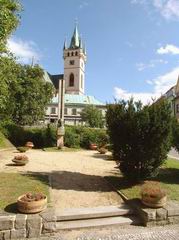 The American anthropologist of Czech origin. He studied the structure of population of North America and examined the question of its original population. Later he studied the history and living of the African, Asian and Australian tribes. He was the adherent of theory of settling North America from Asia over the Bering Strait and of the one origin of the whole world population. He founded one of the biggest museums of man in Washington and the Museum of Aleš Hrdlička in Prague was founded thanks to his donations in 1930.
The American anthropologist of Czech origin. He studied the structure of population of North America and examined the question of its original population. Later he studied the history and living of the African, Asian and Australian tribes. He was the adherent of theory of settling North America from Asia over the Bering Strait and of the one origin of the whole world population. He founded one of the biggest museums of man in Washington and the Museum of Aleš Hrdlička in Prague was founded thanks to his donations in 1930.
|
| František Hrubín (1910 - 1971) |
|
The Czech poet, writer and translator. He wrote lyrical poems and poems, which glorified his native country. He is an author of some dramas and literature for children as well. He also translated French poetry (Verlaine, Rimbaud).
|
| Rudolf Hrušínský (1920 - 1994) |
|
The remarkable Czech actor. A member of the National Theatre.
|
| Jan Hus (John Huss, about 1371 - 1415) |
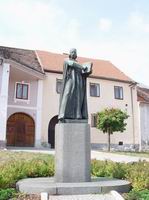 The Czech thinker, preacher, religious reformer, the chancellor of the Charles University in Prague and the preacher in Bethlehem Chapel in Prague. He is an author of many treatises as well. He denounced vices in catholic church and social injustice. He was persecuted because of his ideas and was captured and imprisoned during the synod in Konstanz (Germany) in 1414 and he was burnt to death there on the 6th July 1415. His ideas and death was the decisive factor of the birth of the Hussite movement.
The Czech thinker, preacher, religious reformer, the chancellor of the Charles University in Prague and the preacher in Bethlehem Chapel in Prague. He is an author of many treatises as well. He denounced vices in catholic church and social injustice. He was persecuted because of his ideas and was captured and imprisoned during the synod in Konstanz (Germany) in 1414 and he was burnt to death there on the 6th July 1415. His ideas and death was the decisive factor of the birth of the Hussite movement.
In 1999 catholic church, namely pope John Paul II, apologised for his denouncement and death. He was probably born in the town Husinec.
|
| Mikuláš of Hus (? - 1420) |
|
The Czech politician, leading representative of the Hussite movement. Originally he was a royal hetman of the Hus castle, then he became one of hetmans in the Hussite town Tábor.
|
| Boleslav Jablonský (1813 - 1881) |
|
The Czech poet and priest. He was concentrated on lyrical poetry and later on patriotic and didactic poetry.
|
| Otakar Jeremiáš (1892 - 1962) |
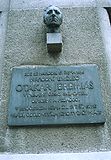 The Czech composer and conductor. He was born in the town Písek. Between 1929 - 1945 he was a conductor of the orchestra of the Czech state broadcasting company and from 1945 he was the director of the opera of the National Theatre. He is an author of several handbooks of instrumentation and conducting.
The Czech composer and conductor. He was born in the town Písek. Between 1929 - 1945 he was a conductor of the orchestra of the Czech state broadcasting company and from 1945 he was the director of the opera of the National Theatre. He is an author of several handbooks of instrumentation and conducting.
|
| Alois Jirásek (1851 - 1930) |
|
The Czech writer and dramatist. His works concern important periods of the Czech history (Hussite movement, national revival, ...).
|
| Josef John (1802 - 1871) |
|
The founder of the reserve for the protection of the primeval forest on the hillside of Boubín mountain. He studied the school for foresters in the town Český Krumlov and then it worked as forester in the Schwarzenbergs' domain in the town Vimperk.
|
| Josef Kaizl (1854 - 1901) |
|
The Czech politician, professor of the Charles University in Prague. From 1891 he was a parliamentarian in the imperial council. Between 1898 - 1899 he was Austrian Minister of Finance.
|
| Vlasta Kálalová - Di Lotti (1896 - 1971) |
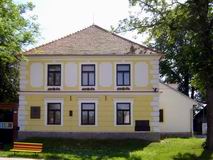 The world famous Czech doctor, all-round person, who graduated the medicine and the philosophical college and who could speak more than 10 languages. She founded Czech Surgical Institut in Baghdad (Iraq) and she was a director there between 1925 - 1933. She was also interested in entomology and she discovered many new species of insects.
The world famous Czech doctor, all-round person, who graduated the medicine and the philosophical college and who could speak more than 10 languages. She founded Czech Surgical Institut in Baghdad (Iraq) and she was a director there between 1925 - 1933. She was also interested in entomology and she discovered many new species of insects.
|
| Rudolf Kalčík (1923 - 1980) |
|
The Czech writer. He was inspired by life of soldiers in borderland. Some films were made after his works.
|
| Ferdinand Kindermann (1740 - 1801) |
|
The teacher and priest. Between 1774 - 1784 he was a chief director of council-schools in Bohemia and from 1790 he worked as a bishop in the town Litoměřice. He wanted to reorganize the school system, eliminate violence in schools and to teach children information, which are useful for their lives.
|
| Karel Klostermann (1848 - 1923) |
 The Czech prose writer, author of novels inspired by life of people living in the Šumava mountains (Bohemian Forest). He reflected life and traditions of these people and beauties of landscape in many works. A lot of places in the Šumava mountains are named after him.
The Czech prose writer, author of novels inspired by life of people living in the Šumava mountains (Bohemian Forest). He reflected life and traditions of these people and beauties of landscape in many works. A lot of places in the Šumava mountains are named after him.
|
| Eduard Kohout (1888 - 1976) |
|
The Czech actor, a member of National Theatre, a well-known interpreter of poetry.
|
| Jiří Kolář (1914 - 2002) |
|
The Czech poet and painter. He was a leader of the art group Skupina 42 (Group 42). During the communist era his work was prohibited and he was prisoned. He specialized in collage in fine arts and he founded new styles of this technique.
|
| Antonín Koniáš (1691 - 1760) |
|
The famous Czech Jesuit and evangelist, one of the symbols of the period of the counter-reformation. He became famous for his elimination of anti-catholic books - he confiscated and burned them - and he is the author of the index of forbidden books. He wrote poetry and doctrinal religious literature as well.
|
| Matěj Kopecký (1775 - 1847) |
|
The important Czech marionetter and author of many dramas for the marionette theatre. He lived in the small town Mirotice for a long time.
|
| Adolf Kosárek (1830 - 1859) |
|
The important Czech painter. He studied at Praque Academy. In his work he tried to portray ideal of romantic countryside. He gradually converged from romanticism to realism. At the conclusion of his activity he came to synthetic and monumental form (e.g. "Peasant wedding").
|
| František Štěpán Kott (1825 - 1915) |
|
Czech teacher and important lexicographer. He worked in Jindřichův Hradec, Jičín, Olomouc, Praque. He established higher private girls school in Jičín. From 1890 he was a member of Czech Academy of Sciences and Arts. He is an author of seven volume Czech - German dictionary.
|
| Jan Pravoslav Koubek (1805 - 1854) |
|
The Chzech poet and translator. He was a professor in the university in Prague and in České Budějovice.
|
| Jakub Krčín (1535 - 1604) |
|
The Czech nobleman and designer and founder of fishponds. He worked as a burgrave in the town Český Krumlov and then as a regent of the Rožmberks' domain in the town Třeboň. He founded many fishponds in South Bohemia (Rožmberk, Svět, ...) and the important Nová Řeka canal (New River).
|
| František Křižík (1847 - 1941) |
|
The famous Czech inventor. He contributed to the Czech development of electrotechnical industry and he became famous due to the invention of the arc lamp. He built the first electric railway in Prague (1891) and interurban electric railway between the towns Tábor and Bechyně (1902).
|
| Ludvík Kuba (1863 - 1956) |
|
The Czech landscape painter, musician, writer, professor in the Academy of Fine Arts. He was a representative of the Late-Impresionism and he collected folk traditions.
|
| Vojtěch Lanna (1805 - 1866) |
|
The Czech industrialist (wood-working machinery and ship transport). He participated on the regulation of water-level of the Vltava and Lužnice rivers and on bulding bridges and railways.
|
| Richard Lauda (1873 - 1929) |
|
The Czech painter and graphic designer. He was inspired by the landscape of South Bohemia. An important part of his works comprises pictures for children and for school education.
|
| Lubomír Lipský (1923) |
|
The well-known Czech theatre and film actor of 20th century.
|
| Oldřich Lipský (1924 - 1986) |
|
The Czech film screenwriter and director, important personality of Czech film of 20th century.
|
| Šimon Lomnický of Budeč (1552 - about 1622) |
|
The Czech writer and priest. The author of catholic spiritual songs and moralistic prose.
|
| Auguste Lumière (1862 - 1954) and Louis (1864 - 1948) Lumière |
|
The French inventors. They constructed the cinematograph (motion picture camera, projector and film copy machine in one) and in 1895 they presented the first motion picture in Paris.
|
| Baltazar Maggi (about 1550 - 1619) |
|
The Italian architect. He worked in South Bohemia, where he rebuilt many castles into chateaus (Český Krumlov, Bechyně, Jindřichův Hradec, Hluboká nad Vltavou).
|
| Gustav Mahler (1860 - 1911) |
|
The Austrian composer and conductor. He worked in several theatres in Bohemia and as the director of the Court Opera in Vienna (Austria).
|
| Anton Erhard Martinelli (1684 - 1747) |
|
The Austrain builder of Italian origin. He was an important representative of the Baroque architecture. He designed many buildings all over the world. He cooperated in the reconstruction of the Hluboká nad Vltavou chateau.
|
| Jiří Mařánek (1891 - 1959) |
|
The Czech writer, author of many satires, historical novels. He is an author of several libretti for operas by O. Ostrčil. He is the author of the biographical novel about the famous Czech composer Bedřich Smetana.
|
| Adam Michna of Otradovice (about 1600 - 1676) |
|
The Czech composer and poet. Author of three collections of spiritual songs. Many of his songs became very popular. He also composed church compositions and latin liturgical lyrics.
|
| Oskar Nedbal (1874 - 1930) |
|
The Czech composer, conductor and viola player, author of many popular light operas and ballets. He worked in Prague, Bratislava (Slovakia) and Vienna (Austria).
|
| Jan Nepomucký (John Nepomucene, ? - 1393) |
|
The Czech priest and vicar. Its original name was Jan of Pomuk. He was tortured to death during the reign of Wenceslas IV and his body was threw down from the Charles' Bridge (Prague) to the Vltava river. He was hallowed in 1721 and canonized in 1729.
|
| Jan Neruda (1834 - 1891) |
|
The Czech poet, prose writer and journalist. He was an important personage of the Czech culture in the second half of the 19th century. He wrote over 2,000 articles and he influenced the next development of the Czech journalism, but the main part of his work are poems and novels.
|
| Štěpánek Netolický (? - 1538) |
|
The Czech fishpond builder and designer. He worked as a regent of the Rožmberks' domain and designed fishpond system around the town Třeboň. The builder of this system was the other well-known regent of this domain, Jakub Krčín. Štěpánek Netolický was a founder of the Zlatá Stoka (Golden Canal), one of two canals for regulation of water system in the region of Třeboň.
|
| Josef Niklas (1817 - 1877) |
|
The important Czech architect in the 19th century.
|
| Vítězslav Novák (1870 - 1949) |
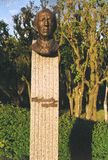 The Czech composer, chancellor of conservatoire in Prague. He composed several operas, symphonic poems and song cycles, cantats and piano pieces.
The Czech composer, chancellor of conservatoire in Prague. He composed several operas, symphonic poems and song cycles, cantats and piano pieces.
|
| Otakar Ostrčil (1879 - 1935) |
|
The Czech composer and conductor. Between 1920 - 1935 he was the director of the opera of the National Theatre in Prague. He is an author of some operas and melodramas and he wrote several compositions for orchestra, choruses, songs and chamber music as well.
|
| Ladislav Mikeš Pařízek (1907 - 1968) |
|
The Czech explorer and writer. He is an author of many books of his travels to Africa and several books for youth.
|
| Mikuláš of Pelhřimov (? - 1459) |
|
The Czech priest, votary of the Hussite movement. Between 1420 - 1434 he was a leader of Hussite clergy. After the defeat of this movement he was imprisoned and he died in prison.
|
| Antonín Matěj Píša (1902 - 1966) |
|
The Czech poet and journalist, literary and dramatic critic, speaker of proletarian poetry. He published works by Czech authors, mostly by Jiří Wolker and Marie Majerová.
|
| Jan Vlastislav Plánek (1789 - 1865) |
|
The Czech revival poet. He was also interested in the history of the town Strakonice, where he worked as a joiner.
|
| Křišťan of Prachatice (about 1360 - 1439) |
|
The Czech priest of Hussitism, astronomer and mathematician, chancellor of the Prague University. He is an author of the book about medicine (about drugs and methods) and herbarium (in the latin language). He was interested in chronology and astrology - his astronomical tables were used till the 16th century.
|
| Stanislaus Prowazek (1875 - 1912) |
|
The German zoologist and parasitologist of Czech origin. He discovered causal organism of typhus.
|
| Antonín Jaroslav Puchmajer (1769 - 1820) |
|
The Czech poet, translator and priest. He is an author of odes, fables and lyrical verses. He translated from six languages (including Latin and Greek).
|
| Přibík Pulkava of Radenín (? - before 1380) |
|
The Czech chronicler and chancellor of the Prague School at St. Gilles. He was entrusted by Charles IV to write the Czech chronicle. He wrote it in the Latin language and the chronicle became very popular and it was used as a source of information in the 16th century, although it was very inexact.
|
| Jan Evangelista Purkyně (1787 - 1869) |
|
The Czech naturalist and philosopher. Professor of the Prague University and of the university in Wroclaw (Poland), where he founded the first physiological institute in the world. In 1825 he discovered centrosphera and the importance of cell as the basic structural and functional unit of living organism.
|
| Vlastimil Rada (1895 - 1962) |
|
The Czech painter, graphic designer and illustrator. Professor in the Academy of Fine Arts in Prague. Illustrator of classical Czech, Russian and English literature.
|
| Alfréd Radok (1914 - 1976) |
|
The Czech film and theatre director. He was born in 1914 in the village Koloděje nad Lužnicí. He directed operas, light operas and plays in the National Theatre for many years. He is the creator of the theatre Laterna Magika (Magic Lantern) and he cooperated in the realization of it in the Expo exhibition in Montreal (Canada, 1967). He died in Vienna (Austria).
|
| Emil Radok (1918 - 1994) |
|
The Czech film director. He was interested in audio-vizual technologies and he was a co-author of polyekran. He was born in the village Koloděje nad Lužnicí and he died in Montreal (Canada).
|
| Václav Vavřinec Reiner (1689 - 1743) |
|
The Czech Baroque painter. His fresco paintings can be often found in buildings by K. I. Dienzenhofer.
|
| Antonín Rezek (1853 - 1909) |
|
The Czech historian, professor of the Prague University. He was interested in the Czech political history of the 16th and 17th centuries and in the history of Czech religions.
|
| Jan Roháč of Dubé (? - 1437) |
|
The Czech nobleman, Hussite hetman and after Jan Žižka's death the leader of the Hussites. He led the revolt against King Zikmund of Luxembourg. His castle was captured and Jan Roháč and his 53 followers were executed.
|
| Josef Rosenauer (1735 - 1804) |
|
The designer and builder of the Schwarzenberský Kanál (Schwarzenbergs' Canal). He worked as a director of the Schwarzenbergs' ship transport of timber and he also designed the project of the canal for floating timber from the Šumava mountains (Bohemian Forest) to Vienna (Austria).
|
| František Roubík (1890 - 1974) |
|
The Czech historian, a member of the Czechoslovac Academy of Science. He is an author of many historical and geographical essays.
|
| Lev of Rožmitál (? - 1485) |
|
The Czech nobleman, follower of King George of Poděbrady. He led deputation of the King to many monarchs of countries in western Europe in 1465 in order to establish permanent peace.
|
| Mikuláš Ruthard of Malešov (? - 1576) |
|
The last member of the Ruthard family. He was a burgrave in the Velhartice castle, then a hetman in the small town Nová Bystřice and then, from 1568, he became a hetman of the town Třeboň. He founded several ponds in the surroundings (e.g. Staňkovský Rybník (Staňkov Pond).
|
| Giovanni Santini (1677 - 1723) |
|
The Czech architect of Italian origin. He was an important designer of the Baroque architecture. The originator of the so-called Czech Baroque Gothic style.
|
| August Sedláček (1843 - 1926) |
|
The important Czech historian and archivist. He worked as an archivist of the town Písek. His work about Czech castles, chateuas and fortresses in Bohemia, which has 15 volumes, belongs to basis of the Czech historiography.
|
| Friedrich Schiller (1759 - 1805) |
|
The German dramatist and poet. He was a friend and co-worker of Johann Wolfgang Goethe.
|
| Jan Adolf Schwarzenberg (1615 - 1683) |
|
The Austrian politician and nobleman with many domains in South Bohemia. He worked at the Austrian imperial council.
|
| Josef Skupa (1892 - 1957) |
|
The Czech puppet actor and stage designer. He was an important person of the Czech and world puppet show. In 1945 he founded the "Theatre of Spejbl and Hurvínek" in Prague. Between 1933 - 1957 he was a president of the international puppet federation - UNIMA.
|
| Ferdinand Sládek (1872 - 1943) |
|
The teacher of music and composer, collector of folk songs. He was interested in popularization of folk songs and he is an author of many songbooks.
|
| Bedřich Smetana (1824 - 1884) |
|
The famous Czech composer and conductor. He is a creator of many operas, symphonic poems, songs, piano pieces, choruses and chamber music.
|
| Antonín Sova (1864 - 1928) |
 The Czech poet and writer, the representative of the literary Impressionism. He mostly wrote lyric poetry and patriotic poems.
The Czech poet and writer, the representative of the literary Impressionism. He mostly wrote lyric poetry and patriotic poems.
|
| Karel Stehlík (1912 - 1985) |
|
The painter of South Bohemian landscape. His main themes were South Bohemian scenery and topics from his journeys. He worked as a teacher of painting.
|
| Ladislav Stehlík (1908 - 1987) |
|
The Czech poet and writer. The countryside of South Bohemia was the main theme of his works. He wrote poems for children as well.
|
| Adalbert Stifter (1805 - 1868) |
|
The Austrian writer. He described the Šumava mountains (Bohemian Forest) and the life of local people in his novels and stories. The museum was founded in his house of birth in the village Horní Planá.
|
| Karel Strakatý (1804 - 1868) |
|
The Czech theatre singer, the first interpreter of the Czech national anthem.
|
| Ladislav Stroupežnický (1850 - 1892) |
|
The Czech dramatist and prose writer. He worked as dramaturgist in the National Theatre in Prague.
|
| Růžena Svobodová (1868 - 1920) |
|
The Czech writer. She was a representative of the Czech literal Impressionism. She was interested in lives of women.
|
| Otakar Ševčík (1852 - 1934) |
|
The Czech violinist and music master. At the turn of the 20th century he worked in the conservatory in Prague and from 1907 he led his own violin school in the town Písek.
|
| Karel Škréta (1610 - 1674) |
|
The Czech Baroque painter. He mainly painted altar pieces and portraits.
|
| Fráňa Šrámek (1877 - 1952) |
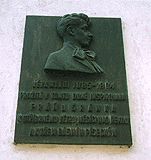 The Czech poet, writer and dramatist. He was anarchist when he was young, later he became a poet of woodnote and romantic lyric poetry.
The Czech poet, writer and dramatist. He was anarchist when he was young, later he became a poet of woodnote and romantic lyric poetry.
|
| Karel Štěch (1908 - 1982) |
|
The Czech painter, graphic designer and illustrator. He was an important painter of landscape of South Bohemia. His graphic works show Czech castles and chateaus. He illustrated books by Petr Bezruč, Karel Hynek Mácha, Karel Jaromír Erben, Jan Neruda, etc.
|
| Alfons Šťastný (1831 - 1913) |
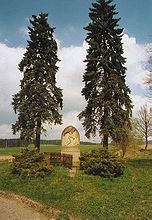 The Czech politician and publicist, the founder of the agrarian specialization in the Czech policy. He was a member of the Czech parliament and publisher of a newspaper.
The Czech politician and publicist, the founder of the agrarian specialization in the Czech policy. He was a member of the Czech parliament and publisher of a newspaper.
|
| Maxmilián Štván (1775 - 1819) |
|
The Czech actor, dramatist and translator of antique authors.
|
| Václav Tille (1867 - 1937) |
|
The Czech literary historian, theorist of theatre and film. He collected Czech fairy tales and wrote his own fairy tales well. His pseudonym was Václav Říha. He is the author of the monograph about the famous Czech writer Božena Němcová.
|
| Jiří Trnka (1912 - 1969) |
|
The Czech designer, illustrator and stage-designer. He is one of founders of the Czech cartoon film.
|
| Hermína Týrlová (1900 - 1993) |
|
The Czech stage-designer, one of founders of the Czech cartoon film.
|
| Josef Kajetán Tyl (1808 - 1856) |
|
The Czech dramatist, actor, writer and journalist. One of the most important persons of the Czech culture of the 19th century. He initiated the foundation of the National Theatre. He was the first translator of works by Shakespeare and author of many plays.
|
| Johannes Urzidil (1896 – 1970) |
|
The Czech-German writer and publicist. Some of his works are in relation to Zvonková and its surroundings (Na hranici – On the Border). Besides books of fiction he was also engaged in the history of art (Goethe in Bohmen). His short story Černopláštník (Man in the Black Coat) borrows from the childhood of the writer Adalbert Stifter. From the time of his emmigration in 1939 until his death he lived mostly in the USA.
|
| Natanael Vodňanský of Uračov (1563 - 1621) |
|
The Czech humanist and writer. Between 1618 - 1620 he was a member of the Royal Chamber and then it became a member of the government. He was executed after the battle on Bílá Hora (1620) as one of the leaders of revolt.
|
| Petr Vok of Rožmberk (1539 - 1611) |
|
The Czech nobleman and politician, leading representative of protestant aristocracy. From 1569 he has a seat in the Bechyně chateau, from 1592 in the town Český Krumlov and from 1602 in the town Třeboň, where he built the huge chateau with the family archive and one of the biggest library in Europe. Between 1606 - 1609 he cooperated in the revolt against the Emperor. In 1611, when the soldiery from Passau (Germany) attacked the country he protected the South Bohemian people against pillage, when he paid soldier's pay from his own sources. He was the last member of the Rožmberks, because he died without children.
|
| Karl Maria von Weber (1786 - 1826) |
|
The German composer and conductor. He was a representative of the Early-Romanticism. He wrote many operas, church music, etc.
|
| Karel Weis (1862 - 1944) |
|
The Czech composer. He is an author of many operas, light operas, songs, cantatas. He was a collector of folk songs and author of several songbooks.
|
| Zikmund Winter (1846 - 1912) |
|
The Czech historian and writer. He was interested in life in Bohemia in the 15th - 17th centuries. He is an author of many historical novels and essays. The most important work is the novel Mistr Kampanus (Master Campanus) about life and work of the Czech humanist Jan Campanus.
|
| Karel Zeman (1911 - 1989) |
|
The Czech screenwriter, director and artist, one of founders of the Czech cartoon film. Some of his films were appreciated all over the world.
|
| Julius Zeyer (1841 - 1901) |
|
The Czech poet, dramatist and writer. He was inspired with by the Czech and European mythology and by the Orient.
|
| Čeněk Zíbrt (1864 - 1932) |
|
The Czech ethnographer and historian of culture. He was a founder of the journal about folk art and habits and he was also a collector of folk habits. He is an author of many essays.
|
| Josef Zítek (1832 – 1909) |
|
The Czech architect, professor at the Polytechnic Institute in Prague. He graduated at the polytechnic school in Prague and in Vienna and at the Academy in Prague. He was inspired by Viennese Neo-Renaissance and north Italian Late-Renaissance architecture. Museum in Weimar, National Theatre and Rudolfinum in Prague, and Mlýnská Kolonáda (Mill Colonnade) in Karlovy Vary (Carlsbad) belong to his notable works.
|
| Jan Zrzavý (1890 - 1977) |
|
The Czech painter, illustrator, graphic designer and stage designer. He was an important representative of the avant-garde of the 1920's.
|
| Jan Želivský (? - 1422) |
|
The priest, radical adherent of the Hussite movement. He was an organizator of defenestration of the Prague's aldermen in 1419. He was executed with his followers.
|
| Jan Žižka (about 1360 - 1424) |
|
The Czech commander of the Hussite army, Hussite hetman. He became a radical adherent of the Hussite movement and he participated in the defenestration of the Prague's aldermen in 1419. After the foundation of the Hussite town Tábor he became the firts hetman there. He was a talented commander, he also led the army even though he got blind. He did not lose any battle. He is a founder of the specific defensive system with using the bulwark made by wooden wagons, which the Hussites used for moving.
|
 The Czech painter and illustrator. He followed most of all famous events and the important personages of the Czech history.
The Czech painter and illustrator. He followed most of all famous events and the important personages of the Czech history.
 The Czech sculptor. He was interested in the attributes of human being and the hope. He created graphics, drawings and ceramics as well. There is a small museum in the house, where he was born, in the small town Chýnov.
The Czech sculptor. He was interested in the attributes of human being and the hope. He created graphics, drawings and ceramics as well. There is a small museum in the house, where he was born, in the small town Chýnov.
 Folk artist and architect of South Bohemia. He decorated many gables of houses in South Bohemia in the style of the so-called rural South Bohemian Baroque (Vlachovo Březí, Šumavské Hoštice, ...).
Folk artist and architect of South Bohemia. He decorated many gables of houses in South Bohemia in the style of the so-called rural South Bohemian Baroque (Vlachovo Březí, Šumavské Hoštice, ...).
 The important Czech thinker and religious reformer, author of several treatises. He was against violence and struggling. Community of equal people was his visionary ideal. He lived with his followers in the small village Chelčice.
The important Czech thinker and religious reformer, author of several treatises. He was against violence and struggling. Community of equal people was his visionary ideal. He lived with his followers in the small village Chelčice.
 The Czech writer and journalist. He was inspired by the Czech history. He was one of the founders of the Czech historical prose. He was persecuted because of his ideas and he was interned for many years. He died in the village Nadějkov.
The Czech writer and journalist. He was inspired by the Czech history. He was one of the founders of the Czech historical prose. He was persecuted because of his ideas and he was interned for many years. He died in the village Nadějkov.
 The Czech poet, essayist and literary critic. He wrote lyrical poetry inspired by the landscape in South Bohemia and also poetry for children. He is author of many epigrams as well.
The Czech poet, essayist and literary critic. He wrote lyrical poetry inspired by the landscape in South Bohemia and also poetry for children. He is author of many epigrams as well.
 The Czech writer, the author of historical adventurous novels.
The Czech writer, the author of historical adventurous novels.
 The Czech journalist, writer, publisher and politician. Between 1851 - 1855 he was internee in Brixen because of his political activities. He wrote epigrams and satirical poetry.
The Czech journalist, writer, publisher and politician. Between 1851 - 1855 he was internee in Brixen because of his political activities. He wrote epigrams and satirical poetry.
 The American anthropologist of Czech origin. He studied the structure of population of North America and examined the question of its original population. Later he studied the history and living of the African, Asian and Australian tribes. He was the adherent of theory of settling North America from Asia over the Bering Strait and of the one origin of the whole world population. He founded one of the biggest museums of man in Washington and the Museum of Aleš Hrdlička in Prague was founded thanks to his donations in 1930.
The American anthropologist of Czech origin. He studied the structure of population of North America and examined the question of its original population. Later he studied the history and living of the African, Asian and Australian tribes. He was the adherent of theory of settling North America from Asia over the Bering Strait and of the one origin of the whole world population. He founded one of the biggest museums of man in Washington and the Museum of Aleš Hrdlička in Prague was founded thanks to his donations in 1930.
 The Czech thinker, preacher, religious reformer, the chancellor of the Charles University in Prague and the preacher in Bethlehem Chapel in Prague. He is an author of many treatises as well. He denounced vices in catholic church and social injustice. He was persecuted because of his ideas and was captured and imprisoned during the synod in Konstanz (Germany) in 1414 and he was burnt to death there on the 6th July 1415. His ideas and death was the decisive factor of the birth of the Hussite movement.
The Czech thinker, preacher, religious reformer, the chancellor of the Charles University in Prague and the preacher in Bethlehem Chapel in Prague. He is an author of many treatises as well. He denounced vices in catholic church and social injustice. He was persecuted because of his ideas and was captured and imprisoned during the synod in Konstanz (Germany) in 1414 and he was burnt to death there on the 6th July 1415. His ideas and death was the decisive factor of the birth of the Hussite movement. The Czech composer and conductor. He was born in the town Písek. Between 1929 - 1945 he was a conductor of the orchestra of the Czech state broadcasting company and from 1945 he was the director of the opera of the National Theatre. He is an author of several handbooks of instrumentation and conducting.
The Czech composer and conductor. He was born in the town Písek. Between 1929 - 1945 he was a conductor of the orchestra of the Czech state broadcasting company and from 1945 he was the director of the opera of the National Theatre. He is an author of several handbooks of instrumentation and conducting.
 The world famous Czech doctor, all-round person, who graduated the medicine and the philosophical college and who could speak more than 10 languages. She founded Czech Surgical Institut in Baghdad (Iraq) and she was a director there between 1925 - 1933. She was also interested in entomology and she discovered many new species of insects.
The world famous Czech doctor, all-round person, who graduated the medicine and the philosophical college and who could speak more than 10 languages. She founded Czech Surgical Institut in Baghdad (Iraq) and she was a director there between 1925 - 1933. She was also interested in entomology and she discovered many new species of insects.
 The Czech prose writer, author of novels inspired by life of people living in the Šumava mountains (Bohemian Forest). He reflected life and traditions of these people and beauties of landscape in many works. A lot of places in the Šumava mountains are named after him.
The Czech prose writer, author of novels inspired by life of people living in the Šumava mountains (Bohemian Forest). He reflected life and traditions of these people and beauties of landscape in many works. A lot of places in the Šumava mountains are named after him.
 The Czech composer, chancellor of conservatoire in Prague. He composed several operas, symphonic poems and song cycles, cantats and piano pieces.
The Czech composer, chancellor of conservatoire in Prague. He composed several operas, symphonic poems and song cycles, cantats and piano pieces.
 The Czech poet and writer, the representative of the literary Impressionism. He mostly wrote lyric poetry and patriotic poems.
The Czech poet and writer, the representative of the literary Impressionism. He mostly wrote lyric poetry and patriotic poems.
 The Czech poet, writer and dramatist. He was anarchist when he was young, later he became a poet of woodnote and romantic lyric poetry.
The Czech poet, writer and dramatist. He was anarchist when he was young, later he became a poet of woodnote and romantic lyric poetry.
 The Czech politician and publicist, the founder of the agrarian specialization in the Czech policy. He was a member of the Czech parliament and publisher of a newspaper.
The Czech politician and publicist, the founder of the agrarian specialization in the Czech policy. He was a member of the Czech parliament and publisher of a newspaper.